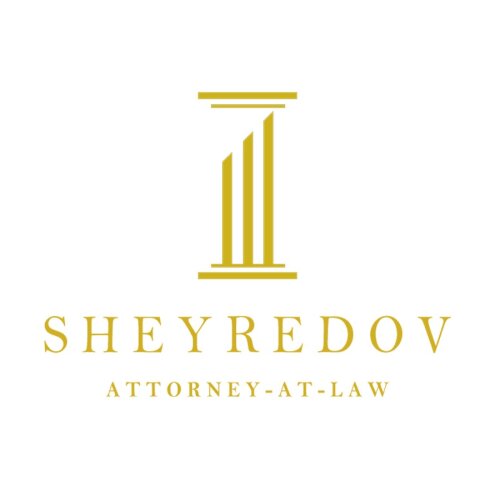Best Estate Planning Lawyers in Bulgaria
Share your needs with us, get contacted by law firms.
Free. Takes 2 min.
Or refine your search by selecting a city:
List of the best lawyers in Bulgaria
About Estate Planning Law in Bulgaria
Estate Planning in Bulgaria involves the process of organizing and managing an individual's assets and affairs in preparation for their eventual transfer to heirs or beneficiaries. It encompasses the drafting of wills and trusts, tax planning, and addressing potential medical or financial decisions in case of incapacitation. Bulgarian estate planning is influenced by local laws that dictate how property and assets can be allocated before and after death, ensuring that wishes are respected within the legislative framework.
Why You May Need a Lawyer
Engaging a lawyer for estate planning in Bulgaria is advisable for several reasons:
- Ensure Legal Compliance: A lawyer can help ensure that your estate planning documents comply with Bulgarian laws, reducing the risk of disputes.
- Complex Assets: If you own a business, international assets, or significant investments, legal guidance can facilitate the structuring and distribution of these assets.
- Minimize Taxes: A lawyer can aid in planning for tax liabilities, aiming to minimize the tax burden on your estate.
- Customized Planning: An attorney can assist you in customizing plans according to your personal circumstances, such as caring for dependents.
- Incapacity Planning: Lawyers can help establish powers of attorney or living wills for situations where you might become incapacitated.
Local Laws Overview
In Bulgaria, estate planning is governed primarily by the Bulgarian Inheritance Act. Key aspects include:
- Intestate Succession: If an individual dies without a will, the estate is distributed according to statutory intestate succession rules.
- Wills: A valid will must be drafted in accordance with Bulgarian legal standards, which may include formal requirements for execution and witnessing.
- Forced Heirship: Bulgarian law recognizes the rights of certain heirs to a compulsory portion of the estate, limiting testamentary freedom.
- Gifts and Donations: Lifetime gifts to certain individuals must be taken into account when distributing an estate.
- Tax Considerations: Estates may be subject to inheritance and gift taxes, and planning can help mitigate these potential liabilities.
Frequently Asked Questions
What is the difference between a will and a trust in Bulgaria?
A will is a legal document that outlines how your assets should be distributed after death, whereas a trust involves transferring assets during your lifetime to be managed by a trustee for your benefit and the benefit of designated beneficiaries.
Is it necessary to have a will?
While not legally required, having a will ensures that your wishes are followed regarding asset distribution, reducing the likelihood of family disputes and legal challenges.
Can a will be contested in Bulgaria?
Yes, a will can be contested on various grounds, such as lack of testamentary capacity, undue influence, or failure to meet formal execution requirements.
What is the role of an executor?
An executor is responsible for carrying out the wishes outlined in your will, ensuring the estate is managed and distributed according to your instructions.
How are estate taxes handled in Bulgaria?
Estate taxes in Bulgaria are levied on the transfer of assets at death, with varying rates depending on the relationship to the deceased and the value of the inheritance.
What happens if I become incapacitated?
If one becomes incapacitated, documents like power of attorney or living wills designate individuals to make medical or financial decisions on your behalf.
Can foreigners own property in Bulgaria?
Yes, foreigners can own property in Bulgaria; however, legal assistance is beneficial to navigate ownership laws, especially regarding land.
How can I change my will?
A will can be updated or replaced at any time while you have testamentary capacity, typically through a codicil or by drafting a new will.
What is a living will?
A living will, or advance directive, is a legal document specifying your preferences for medical treatment if you are unable to communicate these wishes yourself.
Who can witness a will in Bulgaria?
Witnesses must be over 18 and competent. They should not be beneficiaries or closely related to beneficiaries of the will to avoid conflicts of interest.
Additional Resources
For individuals seeking further guidance on estate planning in Bulgaria, the following resources may be helpful:
- National Revenue Agency: Provides information on inheritance and gift taxes.
- Bulgarian Notaries: Responsible for authenticating wills and ensuring compliance with formalities.
- Ministry of Justice: Offers legal insights into the judiciary's role in estate matters and inheritance laws.
- Local Law Firms: Provide specialized estate planning services and consultations tailored to individual needs.
Next Steps
If you need legal assistance in estate planning, consider the following steps:
- Consult a Lawyer: Seek professionals specializing in estate planning for personalized advice and comprehensive plan drafting.
- Evaluate Your Needs: Assess your current assets and familial circumstances to articulate clear estate planning objectives.
- Document Preparation: Work with a lawyer to draft necessary legal documents like wills, trusts, and powers of attorney.
- Review and Update Regularly: Revisit your estate plan periodically, especially after significant life events, to ensure it remains aligned with your wishes.
- Discuss with Family: Open dialogue with your family about your estate plans can help minimize future disputes and misunderstandings.
Lawzana helps you find the best lawyers and law firms in Bulgaria through a curated and pre-screened list of qualified legal professionals. Our platform offers rankings and detailed profiles of attorneys and law firms, allowing you to compare based on practice areas, including Estate Planning, experience, and client feedback.
Each profile includes a description of the firm's areas of practice, client reviews, team members and partners, year of establishment, spoken languages, office locations, contact information, social media presence, and any published articles or resources. Most firms on our platform speak English and are experienced in both local and international legal matters.
Get a quote from top-rated law firms in Bulgaria — quickly, securely, and without unnecessary hassle.
Disclaimer:
The information provided on this page is for general informational purposes only and does not constitute legal advice. While we strive to ensure the accuracy and relevance of the content, legal information may change over time, and interpretations of the law can vary. You should always consult with a qualified legal professional for advice specific to your situation.
We disclaim all liability for actions taken or not taken based on the content of this page. If you believe any information is incorrect or outdated, please contact us, and we will review and update it where appropriate.
Browse estate planning law firms by city in Bulgaria
Refine your search by selecting a city.















